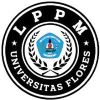UPAYA PENINGKATAN KEMAMPUAN MENGAMATI, MENERAPKAN KONSEP, DAN MEYIMPULKAN PESERTA DIDIK MENGGUNAKAN PEMBELAJARAN BERBASIS PRAKTIKUM
DOI:
https://doi.org/10.37478/jpm.v4i3.2813Abstract
The ability to observe, apply concepts, and draw conclusions is an important aspect of science learning. However, there are still students who have low proficiency in these skills. This can hinder their understanding of concepts and their ability to learn scientific knowledge. This research aims to enhance students' abilities in observing, applying concepts, and drawing conclusions in the subject of ecology and biodiversity through practical-based learning in Class VII B of SMP Laboratorium Percontohan UPI. The research conducted is a Classroom Action Research (CAR). The procedural design of this CAR consists of two cycles, each cycle comprising four steps: planning, action implementation, observation, and reflection. The results indicate that practical-based learning effectively improves students' abilities in observing, applying concepts, and drawing conclusions. There was a significant improvement in observation skills from the pre-cycle to Cycle 2, with the average score increasing from 55 to 84. 87% of the students achieved a high category in observation skills. There was also a good improvement in the ability to apply concepts, with the average score increasing from 55 to 77, and 60% of the students achieving a high category. Similarly, there was a significant improvement in the ability to draw conclusions, with the average score increasing from 47 to 72, and 60% of the students achieving a high category. Based on the research findings, it can be concluded that practical-based learning effectively enhances students' abilities in observing, applying concepts, and drawing conclusions.
Downloads
Keywords:
Observing Skill, Summarizing Skill, Applying Concepts Skill, PracticumReferences
Aslan, O. (2015). How Do Turkish Middle School Science Coursebooks Present the Science Process Skills?. International Journal of Environmental and Science Education, 10(6), 829–843. https://doi.org/https://doi.org/10.12973/ijese.2015.279a
Candra, R., & Hidayati, D. (2020). Penerapan Praktikum dalam Meningkatkan Keterampilan Proses dan Kerja Peserta Didik di Laboratorium IPA. EDUGAMA: Jurnal Kependidikan dan Sosial Keagamaan, 6(1), 26–37. https://doi.org/https://doi.org/10.32923/edugama.v6i1.1289
Cohen, L., Manion, L., & Morrison, K. (2017). Action Research. In Research Methods in Education (pp. 440–456). Routledge. https://doi.org/https://doi.org/10.4324/9781315456539-22
Darmaji, Kurniawan, D. A., Suryani, A., & Lestari, A. (2018). An Identification of Physics Pre-Service Teachers’ Science Process Skills Through Science Process Skills-Based Practicum Guidebook. Jurnal Ilmiah Pendidikan Fisika Al-Biruni, 7(2), 239–245. https://doi.org/https://doi.org/10.24042/jipfalbiruni.v7i2.2690
De Jong, T., Linn, M. C., & Zacharia, Z. C. (2013). Physical and Virtual Laboratories in Science and Engineering Education. Science, 340(6130), 305–308. https://doi.org/https://doi.org/10.1126/science.1230579
Ekici, M., & Erdem, M. (2020). Developing Science Process Skills through Mobile Scientific Inquiry. Thinking Skills and Creativity, 36(1), 1–12. https://doi.org/https://doi.org/10.1016/j.tsc.2020.100658
Gunawan, G., Harjono, A., Hermansyah, H., & Herayanti, L. (2019). Guided Inquiry Model through Virtual Laboratory to Enhance Students’ Science Process Skills on Heat Concept. Jurnal Cakrawala Pendidikan, 38(2), 259–268. https://doi.org/https://doi.org/10.21831/cp.v38i2.23345
Hasruddin, H., Harahap, F., & Mahmud, M. (2019). Contextual Inquiry Model to Improve Students’ Science Process Skill on Microbiology Lesson. PP (Jurnal Pendidikan Dan Pembelajaran), 25(1), 8–15. https://doi.org/https://doi.org/10.17977/um047v25i12018p008
Higde, E., & Aktamis, H. (2022). The Effects of STEM Activities on Students’ STEM Career Interests, Motivation, Science Process Skills, Science Achievement and Views. Hinking Skills and Creativity, 43(1), 1–12. https://doi.org/https://doi.org/10.1016/j.tsc.2022.101000
Idris, N., Talib, O., & Razali, F. (2022). Strategies in Mastering Science Process Skills in Science Experiments: A Systematic Literature Review. Jurnal Pendidikan IPA Indonesia, 11(1), 155–170. https://doi.org/10.15294/jpii.v11i1.32969
Irwanto, R., & Prodjosantoso, A. K. (2018). Undergraduate students’ science process skills in terms of some variables: a perspective from Indonesia. Journal of Baltic Science Education, 17(5), 751–764. https://doi.org/https://doi.org/10.33225/jbse/18.17.751
Kemmis, S., McTaggart, R., & Nixon, R. (2014). Introducing Critical Participatory Action Research. In The Action Research Planner (pp. 1–31). Springer. https://doi.org/https://doi.org/10.1007/978-981-4560-67-2_1
Kurniawati, A. (2021). Science Process Skills and Its Implementation in the Process of Science Learning Evaluation in Schools. Journal of Science Education Research, 5(2), 16–20. https://doi.org/https://doi.org/10.21831/jser.v5i2.44269
Nosela, S., Siahaan, P., & Suryana, I. (2021). Pengaruh Model Pembelajaran Level of Inquiry dengan Virtual Lab terhadap Keterampilan Proses Sains Peserta Didik SMA pada Materi Fluida Statis. Journal of Teaching and Learning Physics, 6(2), 100–109. https://doi.org/https://doi.org/10.15575/jotalp.v6i2.11018
Piesche, N., Jonkmann, K., Fiege, C., & Keßler, J. U. (2016). CLIL for all? A randomised controlled field experiment with sixth-grade students on the effects of content and language integrated science learning. Learning and Instruction, 44(1), 108–116. https://doi.org/https://doi.org/10.1016/j.learninstruc.2016.04.001
Pratono, A., Sumarti, S. S., & Wijayati, N. (2018). Contribution of assisted inquiry model of e-module to students science process skill. Journal of Innovative Science Education, 7(1), 62–68. https://doi.org/https://doi.org/10.15294/jise.v7i1.20633
Rahayu, E. D., & Efendi, N. (2021). Profile of Students’ Science Process Skills in Science Learning in Junior High School. Academia Open, 4(1), 1–10. https://doi.org/https://doi.org/10.21070/acopen.4.2021.2293
Sakdiah, S., Mursal, M., & Syukri, M. (2018). Penerapan model inkuiri terbimbing untuk meningkatkan pemahaman konsep dan KPS pada materi listrik dinamis siswa SMP. Jurnal IPA & Pembelajaran IPA, 2(1), 41–49. https://doi.org/https://doi.org/10.24815/jipi.v2i1.10727
Widdina, S., Rochintaniawati, D., & Rusyati, L. (2018). The Profile of Students’ Science Process Skill in Learning Human Muscle Tissue Experiment at Secondary School. Journal of Science Learning, 1(2), 53–59. https://doi.org/https://doi.org/10.17509/jsl.v1i2.10146
Yennita, Y., Putri, R. Z. E., Astriawati, F., & Abas, A. (2022). Penerapan Model Iquiry Learning Untuk Meningkakan Hasil Belajar Kognitif Mahasiswa Pada Mata Kuliah Anatomi Tumbuhan. Diklabio: Jurnal Pendidikan Dan Pembelajaran Biologi, 6(2), 189–196. https://doi.org/https://doi.org/10.33369/diklabio.6.2.189-196
Downloads
Published
How to Cite
Issue
Section
License
Copyright (c) 2023 Nurul Khotimah, Lilit Rusyati, Wiwin Sriwulan, Mohammad Ikhsanul Hakim

This work is licensed under a Creative Commons Attribution-ShareAlike 4.0 International License.













